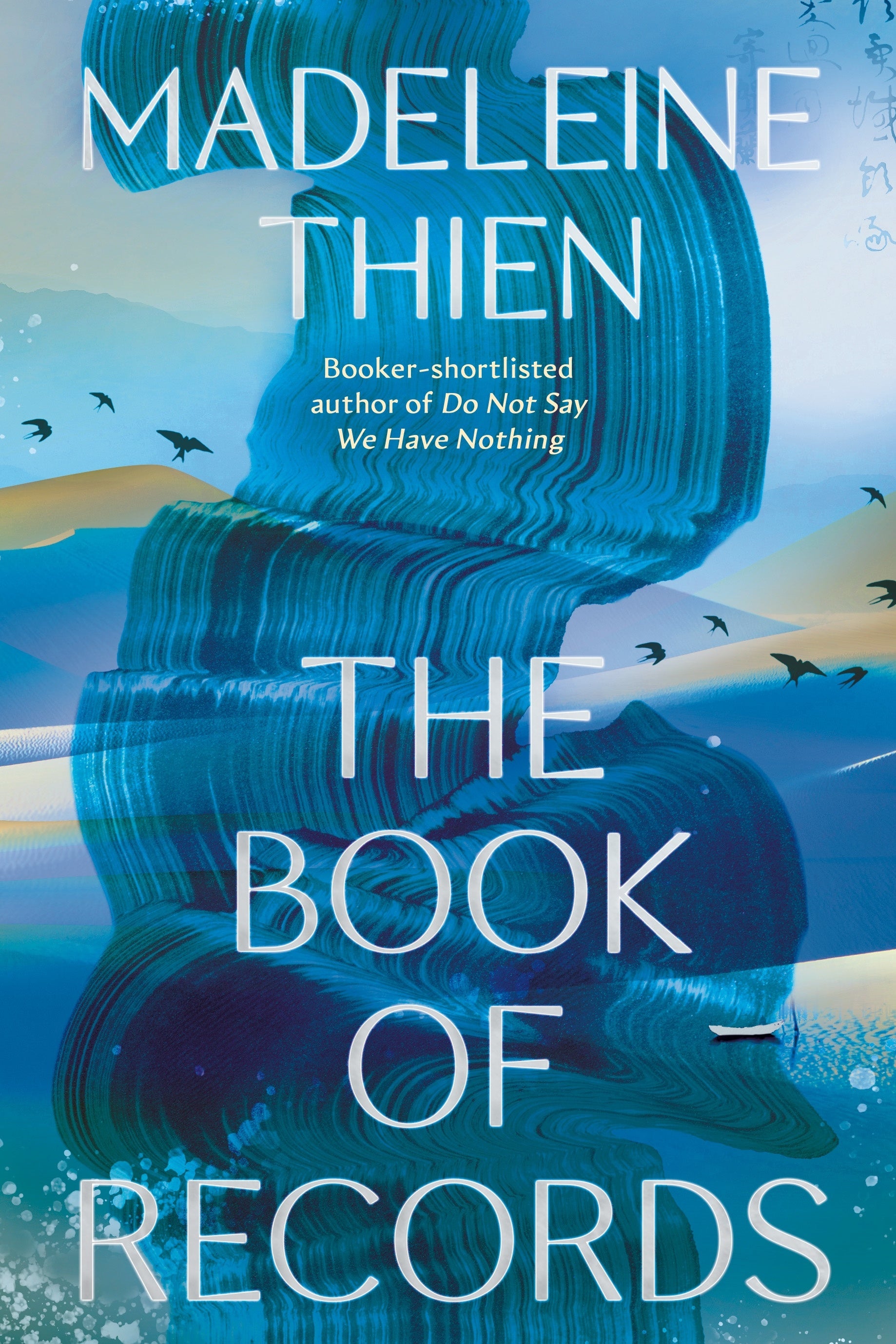Madeleine Thien
Book of Records
Book of Records
Couldn't load pickup availability
The remarkable new novel from the Booker Prize-shortlisted author of Do Not Say We Have Nothing, which leaps across centuries past and future as if different eras were separated by only a door.
Susan's Review
Madeleine Thien is best known for her Booker shortlisted novel Do Not Say We Have Nothing, which deals with the refugee experience and political persecution. The novel also contains something called The Book of Records: the title of Thien’s new work of fiction. Combining historical and speculative fiction with philosophical argumentation, The Book of Records explores themes of displacement, resilience, and the various responses through the ages to the reality of power: from the logic of rationalism to the brutality of totalitarianism.
Set in a dystopian future, the novel’s various narrative strands cohere in the character of a young girl called Lina who, along with her ailing father, has been forced to leave her homeland (an unnamed place that resembles the country of China). Taking with them volumes of The Great Voyagers’ Encyclopedias, they arrive at a mysterious location called The Sea, a fantastical version of a temporary refugee camp that shifts in time and space. Lina remains there until her late fifties, devoted to caring for her father, and finds consolation and companionship by reading her book. Here she encounters three characters called Bento, Blucher and Jupiter, whose historical counterparts are, respectively, the seventeenth-century Portuguese Jewish philosopher Baruch Spinoza, the twentieth-century German American philosopher and historian Hannah Arendt, and the eight-century Chinese poet and politician Du Fu. What ultimately connects all the characters, both fictional and real, is the experience of exile or displacement: Spinoza was excommunicated from his Amsterdam community for his radical religious beliefs; Arendt fled persecution in Nazi Germany; and Du Fu was forced to move many times because of famine and war. They are also connected by an abiding capacity for resilience and for speaking the truth to authority in order to preserve the principles of intellectual freedom, integrity and compassion for the vulnerable.
Thien’s new book requires some knowledge of history and philosophy to fully grasp its meanings. But despite the substantial gaps in my knowledge of these two intellectual disciplines, I found The Book of Records an interesting and thought-provoking meditation on how we might create a life that’s worth living. The novel also surely has relevance for some of our current and crucial global problems: the persecution of minorities, the rise of totalitarianism, the possibility of resistance to authoritarian regimes, and how we might overcome the increasing absence of community in a pervasively disconnected world.
Publisher's Review
The remarkable new novel from the Booker Prize-shortlisted author of Do Not Say We Have Nothing, which leaps across centuries past and future as if different eras were separated by only a door.
'Why did people, who lived so briefly in this universe, contain so much time?'
Lina and her father have arrived at an enclave called the Sea, a staging-post between migrations, with only a few possessions, among them three volumes from The Great Voyagers encyclopedia series.
In this mysterious and shape-shifting building made of time, pasts and futures collide. Lina befriends her neighbours: Bento, a Jewish scholar in seventeenth-century Amsterdam, excommunicated for his radical thought; Blucher, a philosopher in 1930s Germany fleeing Nazi persecution; and Jupiter, a poet of Tang Dynasty China, whose brilliance goes unrecognised by the state. Their stories fuse with those of philosophers from previous centuries: Baruch Spinoza, Hannah Arendt and the Chinese poet Du Fu. And as Lina's ailing father becomes less well, he recounts how he and Lina came to reside in the Sea, and what his betrayals cost their family and others.
Exploring the role of fate in history, the migratory nature of humanity and the place of faith in our world, The Book of Records addresses fundamental questions about creativity, and good and evil. A deeply philosophical work of huge originality and heft, it shows a master storyteller writing at the height of her powers.
Share


